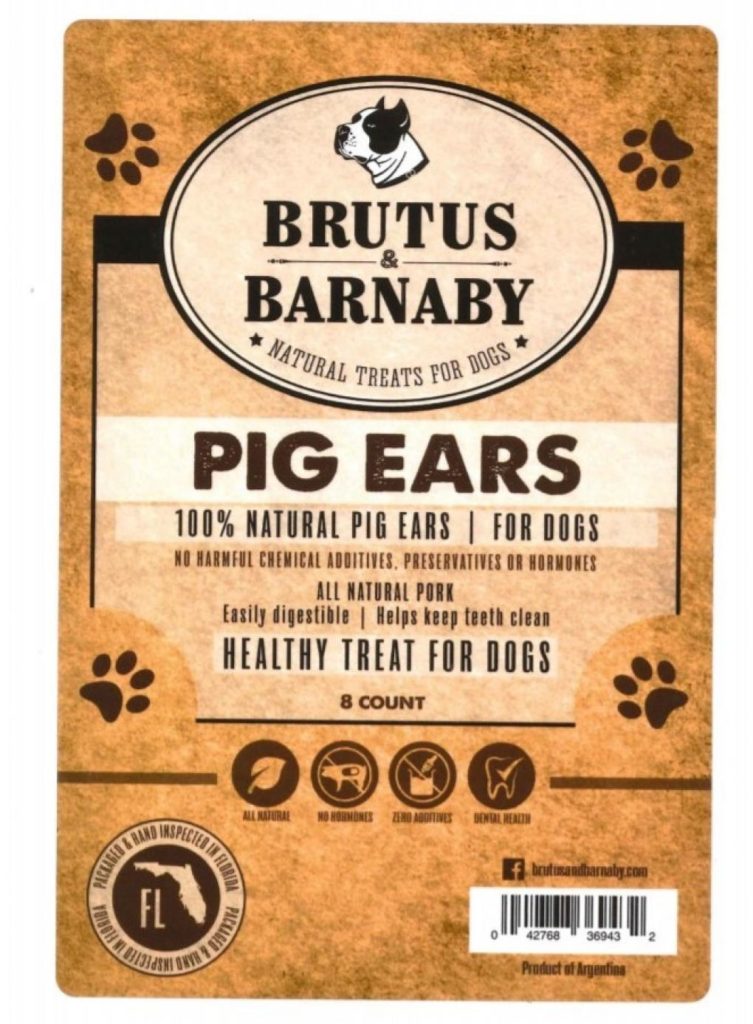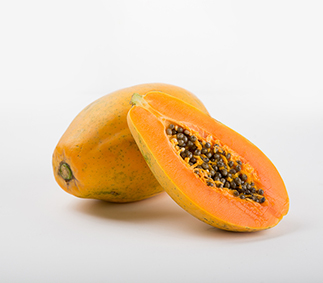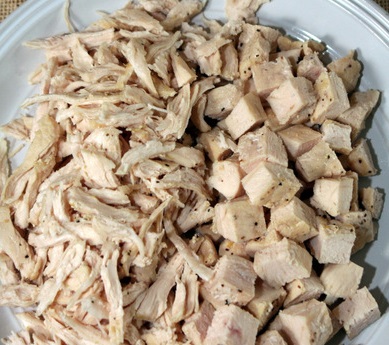The FDA posted on their website that Brutus & Barnaby of Clearwater, Florida recalled all size variations of our Pig Ears for Dogs because it has the potential to be contaminated with Salmonella. Bags of Brutus & Barnaby Pig Ears were distributed to all states via Amazon.com, Chewy.com, Brutusandbarnaby.com and stores of Natures Food Patch in Clearwater, Florida. Four sizes of “Pig Ears 100% Natural Treats for Dogs” (8, 12, 25, and 100 count) were recalled. Brutus & Barnaby has ceased the production and distribution of the product as FDA and the company continues their investigation as to what caused the problem. @ https://www.fda.gov/safety/recalls-market-withdrawals-safety-alerts/brutus-barnaby-llc-recalls-all-size-bags-pig-ears-natural-treats-dogs-because-possible-salmonella?utm_campaign=Brutus%20%26%20Barnaby%20LLC%20recalls%20all%20size%20bags%20of%20%E2%80%9CPig%20Ears%20Natural%20Treats%20for%20Dogs%E2%80%9D&utm_medium=email&utm_source=Eloqua
ruth
Brutus & Barnaby of Clearwater, Florida is recalling all size variations of our Pig Ears for Dogs because it has the potential to be contaminated with Salmonella. Salmonella can affect animals eating the products and there is risk to humans from handling contaminated pet products, especially if they
ruth
The FDA issued a letter to the papaya industry, calling on all sectors of the industry to take actions to prevent outbreaks in the future. The letter to the papaya industry could become a precedent for other commodities of how the agency is intending to enforce in the future the food laws. Since 2011, there have been 8 U.S. Salmonella outbreaks traced to papayas imported from Mexico. One outbreak is ongoing with more than 70 people in 8 states infected. The previous 7 outbreaks involved almost 500 illness, more than 100 hospitalizations, and two deaths. The FDA sees it as the papaya industry’s responsibility to stop recurring Salmonella outbreaks that have inundated U.S. consumers in recent years. They ask the industry to assess venerability factors to contamination. If a foodborne pathogen is identified, a root cause analysis should be performed to determine the likely source of contamination. Procedures and practices that minimize contamination must be implemented. The papaya industry needs to examine the use and monitoring of water used to grow, spray (pesticides, fungicides), move, rinse or wax crops to identify and minimize risks from potential hazards. The industry should enhance traceability, to more rapidly track the product to expedite its removal from commerce. The papaya industry should engage in food safety research to identify the potential sources and routes of contamination by microbial pathogens and develop data-driven and risk-based preventive controls. The FDA issued a warning letter to a papaya importer, Agroson’s LLC, following an FDA investigation at the facility in conjunction with the current outbreak. This investigation uncovered significant violations of the Federal Food, Drug, and Cosmetic Act. @ https://www.fda.gov/news-events/press-announcements/statement-calling-all-sectors-papaya-industry-improve-practices-better-protect-consumers?utm_campaign=082619_Statement_FDA%20calls%20on%20papaya%20industry%20to%20improve%20their%20safety%20practices&utm_medium=email&utm_source=Eloqua
FDA calls on papaya industry to improve their safety practices
ruth
The CDC, several states, and USDA/FSIS are investigating a multistate outbreak of Listeria monocytogenes. While the source of the outbreak was not identified, Whole Genome Sequencing (WGS) showed that bacteria isolated from ill people were closely related genetically. This means that people in this outbreak are more likely to share a common source of infection. At the same time, the Public Health Agency of Canada is also investigating a Listeria monocytogenes outbreak in several Canadian provinces linked to cooked diced chicken. WGS shows that the type of Listeria making people sick in Canada is closely related genetically to the Listeria, making people sick in the United States. As of August 23, 2019, a total of 24 people infected with the outbreak strain of Listeria monocytogenes have been reported from 13 states, with 22 hospitalizations and 2 deaths. In Canada as of August 23, 2019, there have been 7 confirmed cases of Listeria monocytogenes illness with 6 hospitalizations in three provinces: British Columbia (1), Manitoba (1) and Ontario (5). A specific food item, grocery store, or restaurant chain has not been identified as the source of infections in the United States. @ https://www.cdc.gov/listeria/outbreaks/monocytogenes-08-19/index.html
Multistate Outbreak of Listeria Infections
Dan-W
CNN Reported that Spain’s health ministry had issued an international health warning for an outbreak of listeriosis in Seville province tied to pork meatloaf that has infected 175 people (161 in Andalucia), with another 500 cases pending confirmation. Fifty people remained in hospital by Wednesday, 23 of whom were pregnant women, according to Reuters. A 90-year-old woman has died from the Listeria infection. The outbreak is linked to pork meatloaf, known as Carne mechada, produced by Magrudis S.L. in the southern Spanish province. Spain has informed the World Health Organization (WHO) and the European Commission about the outbreak. There have been no reports of international distribution of implicated products. This should limit the possibility of cases in other countries. At the beginning of August a Listeria outbreak in the UK had killed six people who had eaten contaminated hospital food. @ https://www.cnn.com/2019/08/22/health/spain-listeria-alert-scli-intl/index.html
Spain’s health ministry has issued an international health warning over a listeria outbreak that has infected 175 people.




